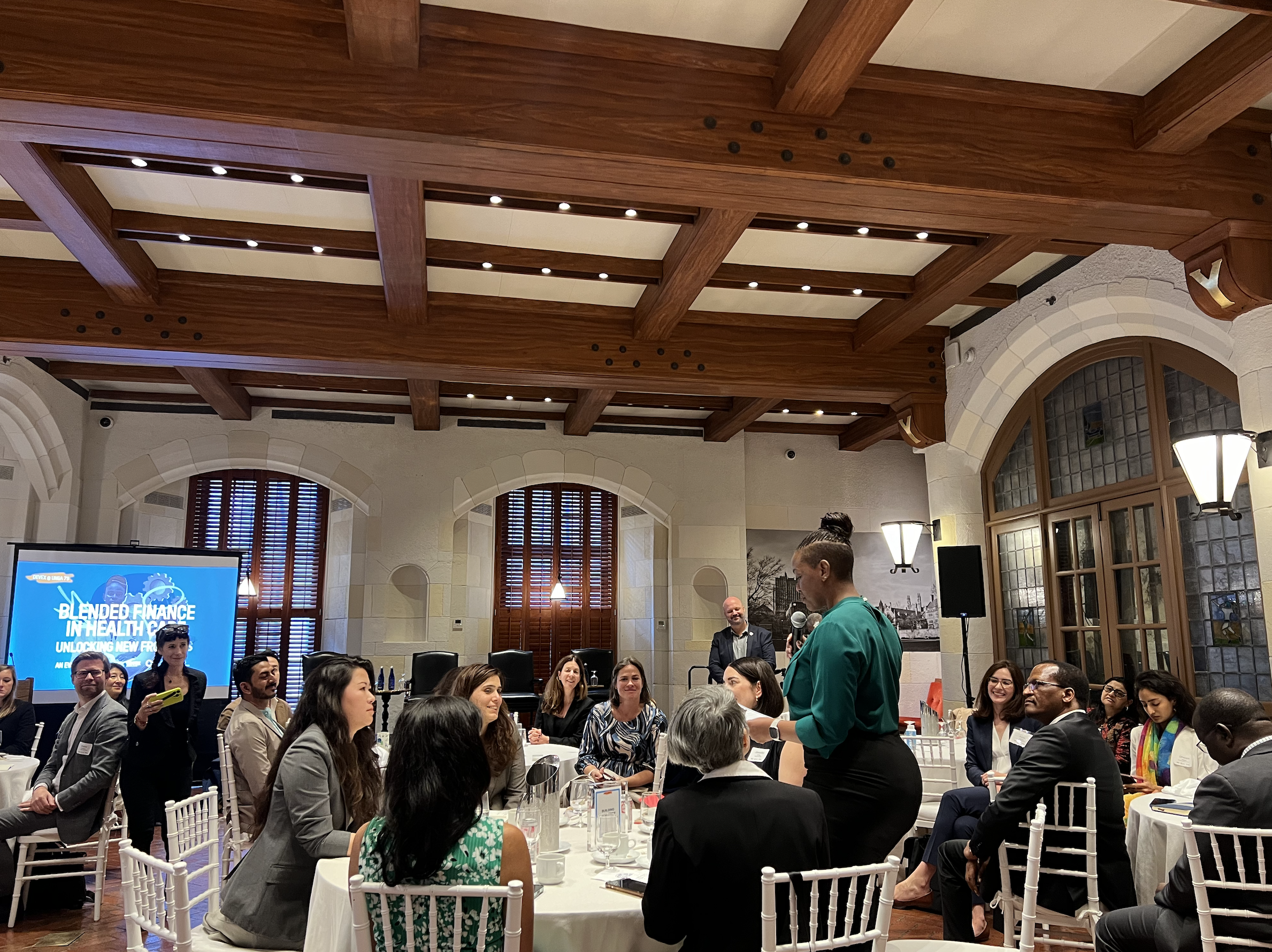Unlocking New Frontiers in Health Financing: Andreea Anastasiu Speaks at UNGA side event
On 23 September 2024, the Government Outcomes Lab’s (GO Lab) Executive Director, Andreea Anastasiu, joined global leaders in health financing for a high-level discussion on the sides of the United Nations General Assembly (UNGA) in New York. The event, titled Blended Finance in Health Care: Unlocking New Frontiers, was co-hosted by Devex, the Vodafone Foundation, and MSD for Mothers. It brought together stakeholders from impact funds, multilateral development banks, philanthropic organisations, and commercial entities, including representatives from the World Bank Group, Global Impact Investing Network, and the Bill & Melinda Gates Foundation, to explore innovative financial solutions for strengthening healthcare systems.
On 23 September 2024, the Government Outcomes Lab’s (GO Lab) Executive Director, Andreea Anastasiu, joined global leaders in health financing for a high-level discussion on the sides of the United Nations General Assembly (UNGA) in New York. The event, titled Blended Finance in Health Care: Unlocking New Frontiers, was co-hosted by Devex, the Vodafone Foundation, and MSD for Mothers. It brought together stakeholders from impact funds, multilateral development banks, philanthropic organisations, and commercial entities, including representatives from the World Bank Group, Global Impact Investing Network, and the Bill & Melinda Gates Foundation, to explore innovative financial solutions for strengthening healthcare systems.
Andreea’s contributions focused on how innovative funding models, like social impact bonds (SIBs), can help address financing gaps and support outcomes-based approaches in health programmes. While SIBs are not technically a form of blended finance, Andreea highlighted that they can be seen as a powerful tool for enabling cross-sector collaboration and aligning resources for social impact. She explained that impact bonds are better understood as mechanisms to foster more public-private collaboration rather than as transactional investment vehicles.
“When structuring impact bonds or other results-based financing mechanisms, it’s crucial to start with a focus on the desired outcomes,” Andreea emphasised. “We shouldn’t get caught up in the complexity of structuring transactions at the outset but instead think about what meaningful results we want to achieve and then consider the most appropriate funding approach or instrument for the context.”

Referencing insights from the recently launched GO Lab report, The Evolution of Social Outcomes Partnerships in the UK: Distilling fifteen years of experience from Peterborough to Kirklees, Andreea underscored that well-designed SIBs can deliver accountable, adaptive, and person-centred services. This report, which draws on the global Impact Bond Dataset curated by the GO Lab, explores how the world’s first social impact bond at Peterborough Prison has informed the development of similar partnerships across health, employment, education, social care, and beyond.
She also shared insights from GO Lab’s research on the Mental Health and Employment Partnership (MHEP), which demonstrated the importance of context-specific design and strong governance structures. “Successful programmes need to be embedded into existing local ecosystems,” she noted. “For long-term impacts, we must invest not only in innovative financial models but also in robust data and governance systems.”
The event served as an opportunity for practitioners and policymakers to reflect on strategies for creating resilient healthcare systems that attract private sector investment while delivering sustainable social outcomes. As part of her closing remarks, Andreea reiterated that outcomes-based approaches should not be seen as a one-size-fits-all solution but should be considered as part of a broader toolkit for building effective public-private partnerships in the health sector.